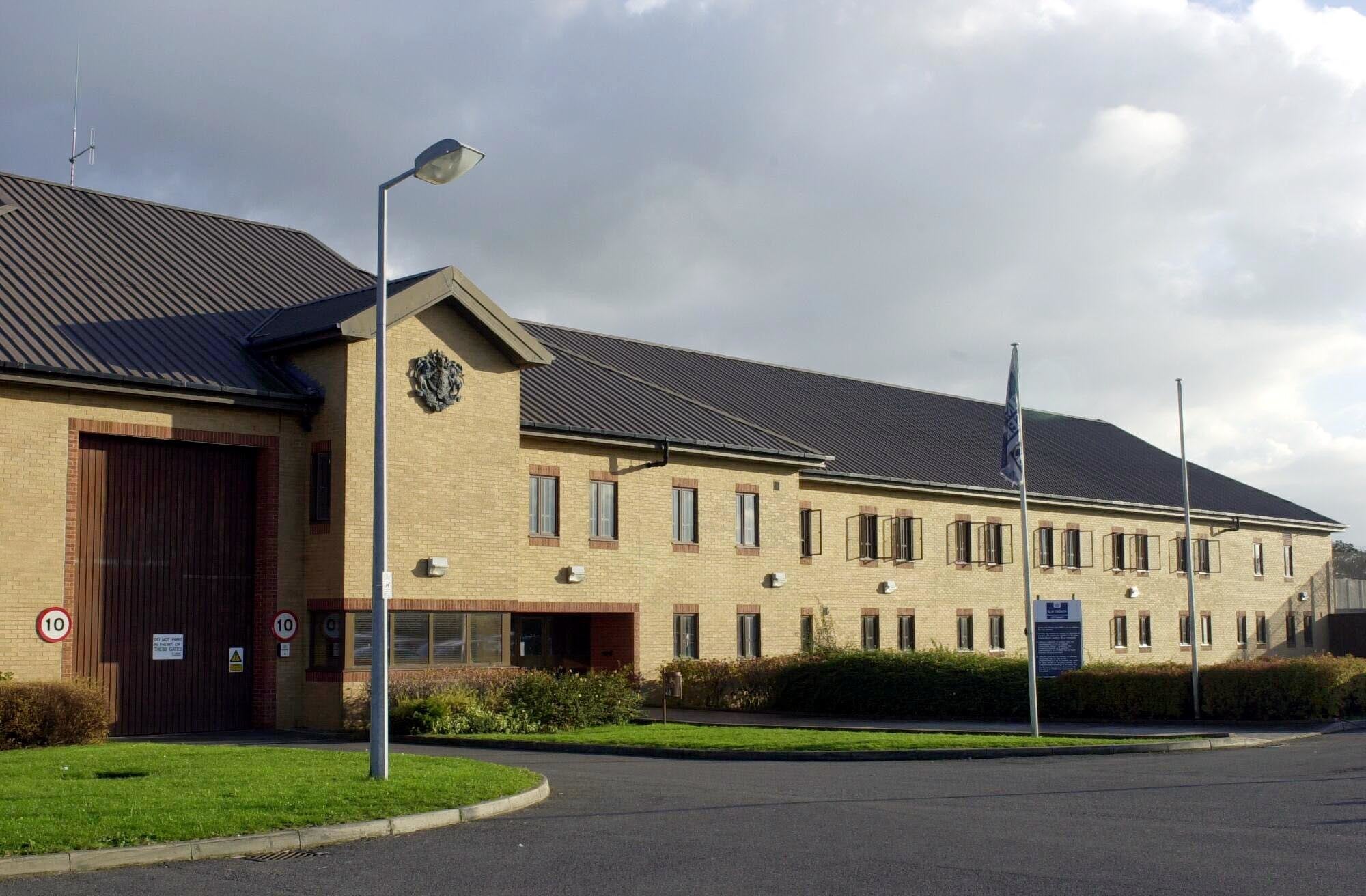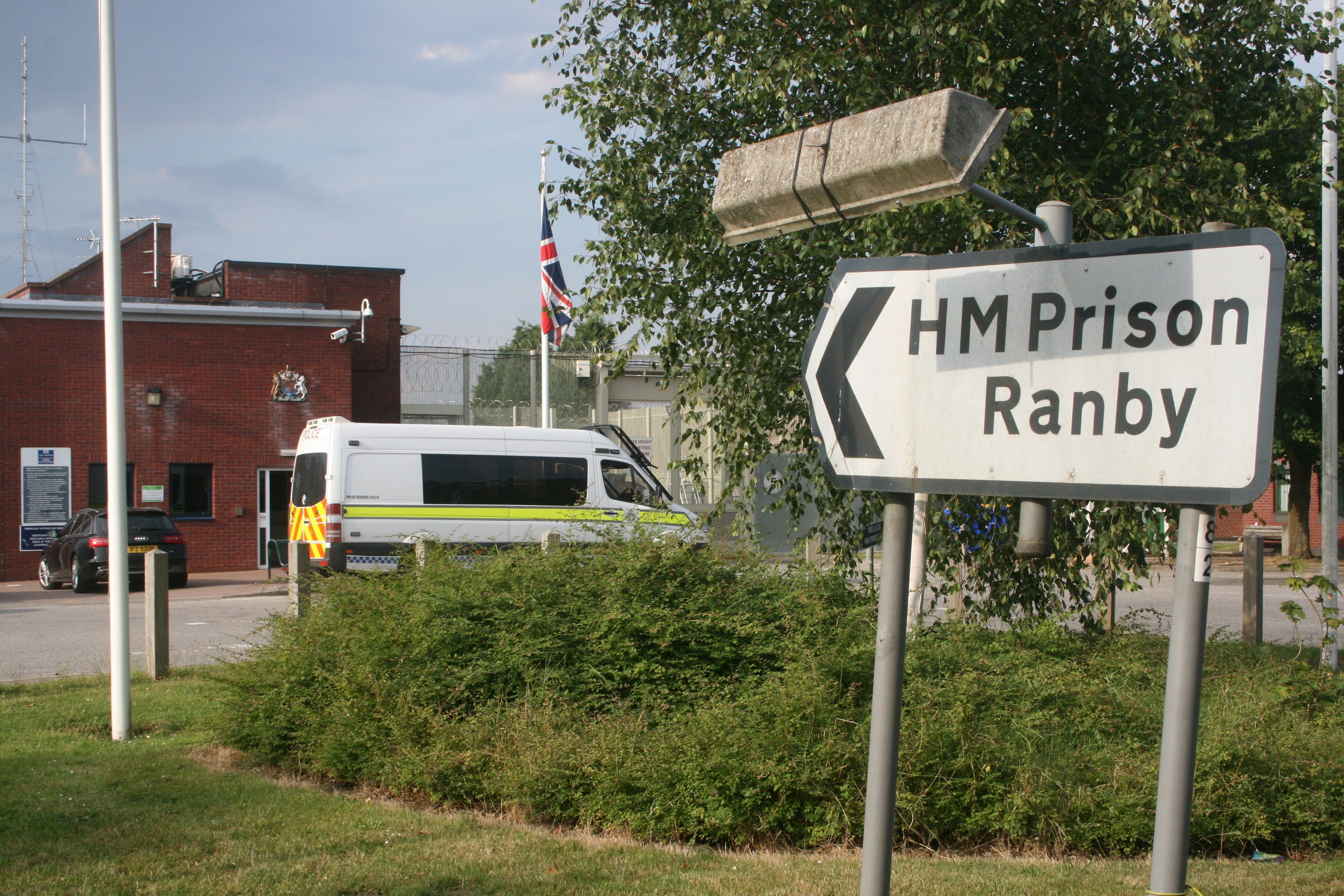Sunak failing on pledge to tackle prison overcrowding as less than half of promised pop-up cells built
Exclusive: Pop-up cells are not suitable for dangerous prisoners and can only be used in certain jails
Rishi Sunak is failing to deliver on the government’s pledge to tackle prison overcrowding as less than half of the pop-up cells promised have been built so far - and they aren’t even suitable for dangerous prisoners, The Independent can reveal.
Just 380 of the pledged 1,000 cells were installed in 2023 as part of the £12million rapid deployment cells project, one of a number of measures the government is using to try and solve the overcrowding crisis in prisons.
Ministers have said that they will try to rent cells overseas and allow criminals to be released from prison early in order to free up space.
The prison population currently stands at 87,216 and experts warn that when courts start up again next year prisons will face a new capacity “crisis” in Spring. Ministers promised in March that 1,000 rapid cells would be rolled out at 18 sites, with the majority to be delivered in 2023.
But new FOI data shows that only 380 pop-up cells were put into prisons last year and that they have gone into six category C or D prisons, where prisoners are less high-risk.
Labour’s shadow prisons minister reacted to the figures, saying the Tories “have proven they are incapable of building anything”.
Some of the most serious overcrowding is in old Victorian category B local prisons, such as Wandsworth, but there is no space on the grounds for these rapid deployment cells.

Cat B jails are used to house prisoners taken directly from court, or are training prisons that hold longer-term, high-security prisoners. Cat C jails are also training prisons, but usually house prisoners deemed less high-risk than Cat B.
Some Cat B prisoners are moved on into Cat C prisons, and so adding capacity here should help when governors need to free up space. However, some Cat C governors have shared concerns that they can’t find enough suitable risk-assessed prisoners to live in the pop-up cells, chair of the Prison Governor’s Association Andrea Albutt said.
The way the cells have been designed means that prisoners are able to get out of them, and so only trusted prisoners can use them. These are usually the prisoners who are moved on into Cat D open prisons, Ms Albutt said.
The cells at HMP Norwich, which have been described as “like accommodation you would have had at Butlins”, have en-suite bathrooms, a bed, a desk and a see-through television set - to prevent prisoners from hiding contraband inside them.
Explaining the type of person needed to stay in the pop-up cells, she said: “You want well-behaved prisoners who need normal supervision, and who can be trusted to be in cellular accommodation that they can get out of. The sort of prisoners that you need to send to cat D prions need to be low-risk, coming to the end of their sentence, but these are the prisoners you also need in the RDCs.”

Referring to overall population pressures, she said she expected to be “in crisis” again by Spring: “The courts delisted some cases to give us some breathing space, but now they’ve relisted them. They are going to start going back into court in January and February, so that is why we are expecting to have a crunch period after that.”
The Ministry of Justice said that, while only 380 pop-up cells were installed in 2023, they aim to install a further 200 by the end of January 2024. Others out of the total 1,000 have been unexpectedly held up due to planning issues.
Six new prisons are also in the pipe line to free up space. However Mark Fairhurst, at the Prison Officers Association, said that the government “can’t build new prisons quick enough.” He added: “We’ve been overcrowded for decades and successive governments have failed to address it.”
Shadow minister for prisons, probation and parole, Ruth Cadbury, said: “This is just the latest in the long-running saga of this government’s inability to increase prison capacity. The reality is the Conservatives have proven they are incapable of building anything.”
Mr Fairhurst added: “Rapid deployment cells take a while to set up because of the infrastructure they need, like electrics and plumbing. Most of them are put on sports field but for most Victorian, inner city, cat B locals, like Wandsworth, Liverpool, Swansea, Bristol, they don’t have the space for rapid deployment cells.”
Wandsworth only has normal capacity for around 964 prisoners, but is now holding 1615.
HM Inspector of Prisons, Charlie Taylor, said that prisoners tend to prefer the Portakabin-style “pop-up” cells. But he warned that rapidly increasing the number of prisoners using pop-up cells without employing more already overstretched officers can serve merely to make the situation worse and further hamper already poor levels of access to rehabilitation.
He added: “They’re being put on exercise yards and football pitches, and that means those places are then being taken out of commission, so there’s an ‘opportunity cost’ of bringing those into prisons inevitably.”
Mr Sunak has said that his government is trying to build 10,000 more prison places over the next few years so that they can lock up more criminals. The Independent revealed that the government watchdog, the National Audit Office, accused Mr Sunak’s Treasury of failing to provide the vital cash needed to increase capacity.
When prisons are full, the government falls back on police cells to temporarily house prisoners, in a scheme called Operation Safeguard. The Ministry of Justice has already paid out almost £40 million to police forces for use of these cells.

Freedom of Information data obtained by The Independent shows that some forces are being paid hundreds of thousands of pounds to house no prisoners. City of London Police were paid £197,651 by the MoJ in the year up to 17 November for housing no prisoners.
Thames Valley Police also received none but pocketed £634,726, and Warwickshire received £812,585 for the same. Northamptonshire received £882,975 for housing two prisoners for one day each.
Labour’s Ms Cadbury said the Tories’ “mismanagement of prison capacity has meant that over £40million of taxpayer’s money has been given to police forces to rent police cells - which in some cases weren’t even used”.
Pia Sinha, chief executive of the Prison Reform Trust, said ministers needed to reduce demand for prison places to prevent the prison system being “in permanent crisis”.
She added: “Spending millions on renting police cells and prefab, temporary accommodation is a wasteful quick fix to paper of the government’s failure to plan.
“This approach is symptomatic of the short-termism that has bedevilled criminal justice policy over the last decade. Overcrowded and dilapidated prisons do little to support people away from crime, but history has shown that we can’t just build our way out of this problem.”
A spokesperson for the Ministry of Justice said: “Rapid Deployment Cells are just one part of the biggest prison building programme since the Victoria era that means we can keep the most dangerous offenders behind bars for longer.
“We are creating 20,000 new prison places with a quarter already delivered and 10,000 expected by the end of 2025. We have also brought on an additional 2,500 places in 2023 through measures such as doubling-up on cells and delaying refurbishment where it is appropriate to do so.”
Join our commenting forum
Join thought-provoking conversations, follow other Independent readers and see their replies
Comments
Bookmark popover
Removed from bookmarks